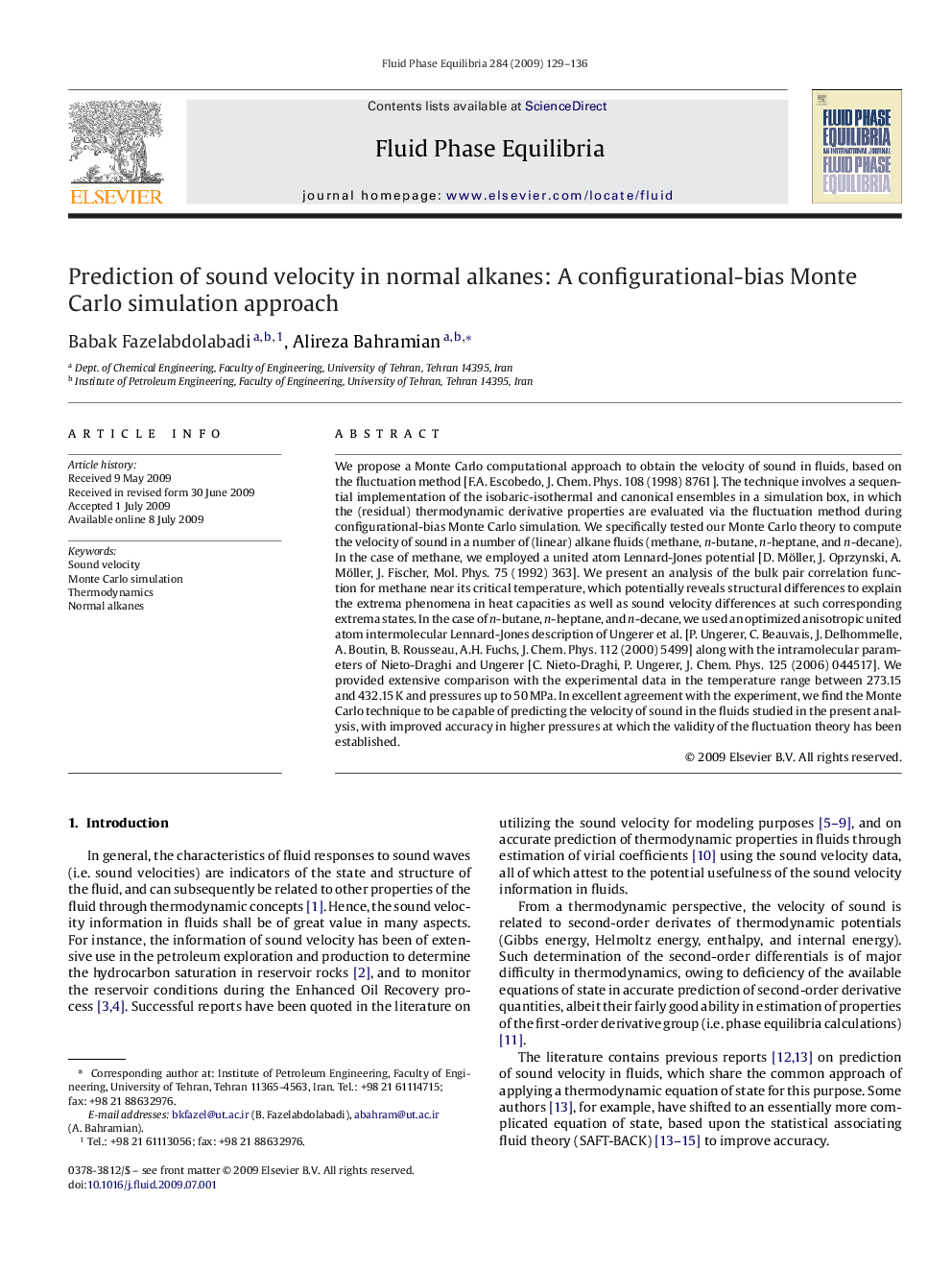| Article ID | Journal | Published Year | Pages | File Type |
|---|---|---|---|---|
| 203322 | Fluid Phase Equilibria | 2009 | 8 Pages |
We propose a Monte Carlo computational approach to obtain the velocity of sound in fluids, based on the fluctuation method [F.A. Escobedo, J. Chem. Phys. 108 (1998) 8761]. The technique involves a sequential implementation of the isobaric-isothermal and canonical ensembles in a simulation box, in which the (residual) thermodynamic derivative properties are evaluated via the fluctuation method during configurational-bias Monte Carlo simulation. We specifically tested our Monte Carlo theory to compute the velocity of sound in a number of (linear) alkane fluids (methane, n-butane, n-heptane, and n-decane). In the case of methane, we employed a united atom Lennard-Jones potential [D. Möller, J. Oprzynski, A. Möller, J. Fischer, Mol. Phys. 75 (1992) 363]. We present an analysis of the bulk pair correlation function for methane near its critical temperature, which potentially reveals structural differences to explain the extrema phenomena in heat capacities as well as sound velocity differences at such corresponding extrema states. In the case of n-butane, n-heptane, and n-decane, we used an optimized anisotropic united atom intermolecular Lennard-Jones description of Ungerer et al. [P. Ungerer, C. Beauvais, J. Delhommelle, A. Boutin, B. Rousseau, A.H. Fuchs, J. Chem. Phys. 112 (2000) 5499] along with the intramolecular parameters of Nieto-Draghi and Ungerer [C. Nieto-Draghi, P. Ungerer, J. Chem. Phys. 125 (2006) 044517]. We provided extensive comparison with the experimental data in the temperature range between 273.15 and 432.15 K and pressures up to 50 MPa. In excellent agreement with the experiment, we find the Monte Carlo technique to be capable of predicting the velocity of sound in the fluids studied in the present analysis, with improved accuracy in higher pressures at which the validity of the fluctuation theory has been established.
